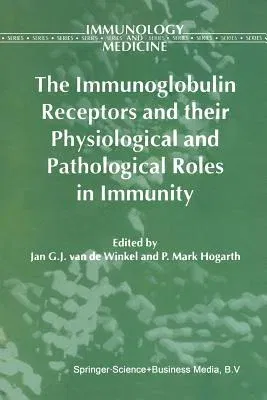The Immunoglobulin Receptors and Their Physiological and Pathological Roles in Immunity (Softcover Reprint of the Original 1st 1998)Paperback - Softcover Reprint of the Original 1st 1998, 11 October 2012

Qty
1
Turbo
Ships in 2 - 3 days
In Stock
Free Delivery
Cash on Delivery
15 Days
Free Returns
Secure Checkout
Part of Series
Immunology and Medicine
Print Length
324 pages
Language
English
Publisher
Springer
Date Published
11 Oct 2012
ISBN-10
9401061068
ISBN-13
9789401061063
Description
Product Details
Book Edition:
Softcover Reprint of the Original 1st 1998
Book Format:
Paperback
Country of Origin:
NL
Date Published:
11 October 2012
Dimensions:
23.39 x
15.6 x
1.83 cm
Genre:
Health & Fitness
ISBN-10:
9401061068
ISBN-13:
9789401061063
Language:
English
Location:
Dordrecht
Pages:
324
Publisher:
Series:
Weight:
485.34 gm

